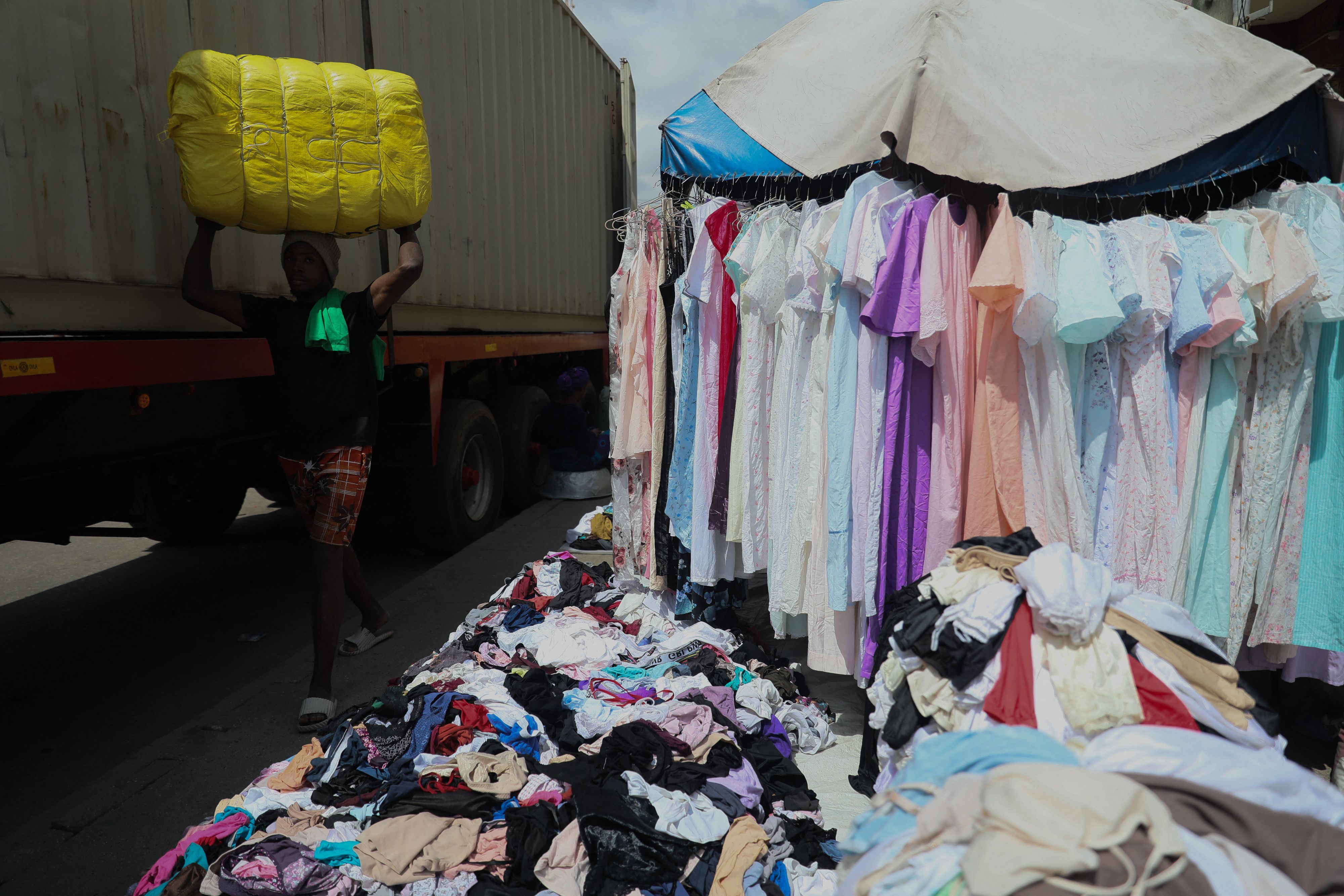Sometimes, the most mundane things become extraordinary when they are missing – such as breathing fresh air becoming a distant memory.
This isn't a scene from a dystopian novel; it's a stark reality for millions in Africa's most polluted regions as landscapes that used to nurture and nourish the living now bear the scars of industrial inroads.
In Nigeria's Lagos, 34-year-old mother of three Amina Yusuf despairs at the thought of watching her children's health wither away in the toxic haze of diesel fumes and burning waste.
"My youngest son, Ahmed, has been in and out of the hospital with asthma attacks," she tells TRT Afrika. "The doctor says it's because of the pollution, but what can I do? We can't afford to move elsewhere."
In South Africa's Mpumalanga province, home to some of the world's largest coal-fired power plants, residents like Thabo Mokoena describe a life blanketed in soot and smog.
"The air here hangs heavy like a shroud. You can't escape it," he says. "My wife has developed a chronic cough, which doctors say is the cumulative effect of breathing polluted air every day. We feel trapped. This is our home, but it's also killing us."
Global emergency
Over 47 million health professionals, patients, advocates, and civil society representatives worldwide have united to demand urgent measures to combat air pollution and safeguard public health.
This resounding plea will take centre stage at the Second Global Conference on Air Pollution and Health, jointly hosted by the World Health Organisation (WHO) and the Colombian government in Cartagena from March 25 to 27.
Data shows that air pollution is one of the most potent environmental threats to health, claiming an estimated seven million lives annually. It is the leading cause of respiratory and cardiovascular diseases, strokes, lung cancer, and pneumonia.
The toll is particularly severe in Africa, where rapid urbanisation and reliance on polluting energy sources are rampant.
From the industrial hotspots of South Africa to Kenya's rural hinterland, where families rely on open fires for cooking, the air people breathe is slowly stealing their health and future.
In Dandora, one of the informal settlements in the Kenyan capital of Nairobi, 28-year-old teacher Jane Mwangi talks about feeling "powerless" as she reflects on how charcoal stoves and waste burning have affected young learners.
"Many of my students frequently miss school because of coughs and chest infections. We know it's the air," she tells TRT Afrika.

TRT Global - Fast fashion is at the root of an environmental and public health disaster unfolding in Ghana due to increasing imports of discarded clothing, mainly second-hand and unused clothes from the West.
On the same page
The upcoming conference in Cartagena aims to change the belief that nothing can be done about pollution.
The first step in pushing to make clean air part of the global agenda is to get political leadership, UN agencies, academics, and civil society to speak in one voice about this existential crisis.
"Forty-seven million people from the health community have issued a clarion call for bold, science-driven action. Their voices must be heard," WHO's director-general, Dr Tedros Adhanom Ghebreyesus, says in a statement ahead of the conference.
"WHO is supporting countries to implement evidence-based tools to address air pollution and prevent the disease it causes. From the Cartagena conference, we hope to see concrete commitments from countries to implement those tools and save lives."
Dr Maria Neira, WHO's director for environment, climate change and health, echoes the potential for progress.
"Clean air is not a privilege; it's a human right. We have seen cities and countries significantly improve air quality by enforcing stricter pollution limits. Now, we need to scale up these efforts globally," she says.
Sustainable solutions
The Cartagena conference will focus on concrete measures, including stricter air quality standards, a transition to cleaner energy, and an expansion of sustainable transport.
In Ghana's Accra, where waste burning is common, 45-year-old trader Akua Mensah laments the impact on her livelihood.
"The smoke makes breathing hard, and customers avoid my stall because of the fumes. My income has dropped, and my health is failing. This is no way to live," says Akua.
The good news is that communities are beginning to mobilise and demand action from their governments.
Many Kenya grassroots organisations are leading the campaign for cleaner, affordable energy solutions for cooking needs in the East African nation.
In South Africa, activists push for a smooth transition from coal to renewable energy.
Right to health
The commitments made at the Cartagena conference and the 2025 UN high-level meeting on non-communicable Diseases could mark the turning point in the fight against air pollution.
For people like Amina, Jane and Thabo, these efforts cannot come soon enough.
"We need clean air to live, thrive, and see our children grow up healthy," says Amina. "This isn't just our fight; it's a fight for everyone."















